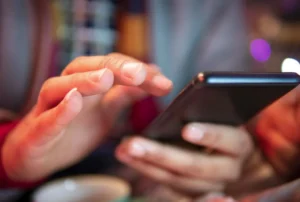 The right to face your accusers is among the most fundamental rights in the American system of justice. If you are facing charges, the right of confrontation can play a critical role in your criminal defense strategy. Yet, as is often the case, new technologies are straining the application of old legal principles.
The right to face your accusers is among the most fundamental rights in the American system of justice. If you are facing charges, the right of confrontation can play a critical role in your criminal defense strategy. Yet, as is often the case, new technologies are straining the application of old legal principles.
In court, someone who accuses you of committing a crime can be vetted through cross examination, their credibility gauged by a jury or judge in close physical proximity. But, in Chicago, law enforcement authorities will now be trying out a program under which individuals who are completed shielded by the anonymity of technology can provide information about a person that, in their sole estimation, may be committing a crime.
Three Areas Slated To Test Pilot Program That Will Eventually Expand
On July 8, Chicago Police Superintendant Garry McCarthy announced that details of a program that he says will allow anyone in the city to provide anonymous information to the authorities with no way for the police officers who are provided with that information to track it back to its source.
The pilot program allows individuals to send text messages containing crime tips to the Chicago Police. These text messages will remain anonymous, not even linked to the phone number from which they originate. The program is first being implemented in the River North area and two areas with high crime rates on Chicago’s West and South Sides. Eventually, the program is set to expand citywide.
In addition to allowing for anonymous tips via text, the program will allow witnesses to send in photos they have taken with their phones and also includes the establishment of three new police Twitter accounts, one for each of the districts participating in the pilot program.
Don’t Forfeit Your Right To Face Your Accusers
The Chicago Police no doubt have a legitimate interest in wishing to engage the public via new forms of electronic communications. But, allowing anyone to make accusations without even revealing their own identity is legally problematic.
The new tip program could leave you falsely accused of a crime. Pictures shot with a phone can easily be taken out of context, and those reporting so-called crimes anonymously with the ease of simply sending a text message could easily be mistaken as to the true nature of what is going on.
If you have been accused of a crime, you still have rights and a strong legal defense can help negate evidence collected in violation of those rights. Even with the significant power you have to defend yourself in court with the help of a criminal defense attorney, the new program allowing for anonymous tips through technology could leave you in a difficult position without the ability to question the motives or perceptions of your accuser.

